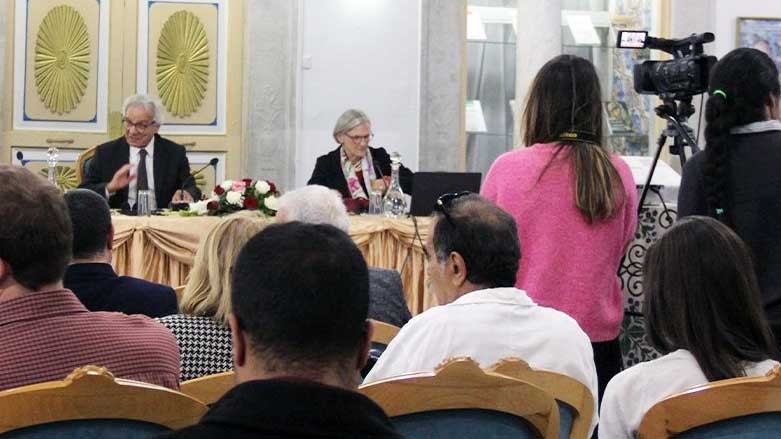On May 17th, Pr. Lisa Anderson, Special Lecturer and James T. Shotwell Professor Emerita of International Relations at Columbia | SIPA, as well as a member of the CGC Tunis Faculty Advisory Committee, Dean Emerita of Columbia | SIPA, and Former President of The American University in Cairo, delivered a talk at L'Académie Tunisienne Beit al-Hikma-المجمع التونسي بيت الحكمة.
The enlightening talk explored the changing purposes of the state in the Arab world, highlighting the increasing influence of the business enterprise as a unit of political authority and a standard of political aspiration.
This event is jointly organized by Columbia Global Centers I Tunis, L'Académie Tunisienne Beit al-Hikma-المجمع التونسي بيت الحكمة and CEMAT.
Watch the recording here.
Summary:
The exercise of political authority in the modern Arab world has seen three eras of contestation as states, regimes and private enterprises served in turn as the measure and locus of politics. In the first decades after independence, the principal focus of contention was definition and control of the states bequeathed the region by imperialism. In the latter quarter of the twentieth century, the emphasis shifted to regimes, particularly their stability. By the time of the US invasion of Iraq in 2003, international investment in stability was abandoned in favor of regime change—often framed as “democracy promotion”—and the uprisings of the Arab spring less than a decade later sealed the fate of many regimes that had based their rule on longevity and familiarity. Today the business enterprise supplements and increasingly supplants both state and regime as the unit of political authority and the standard of political aspiration. This turn to the market, which was encouraged internationally and embraced by governments across the region, reflects a reformulation of the principles of citizenship as it redefines the relationship of rulers and ruled.
